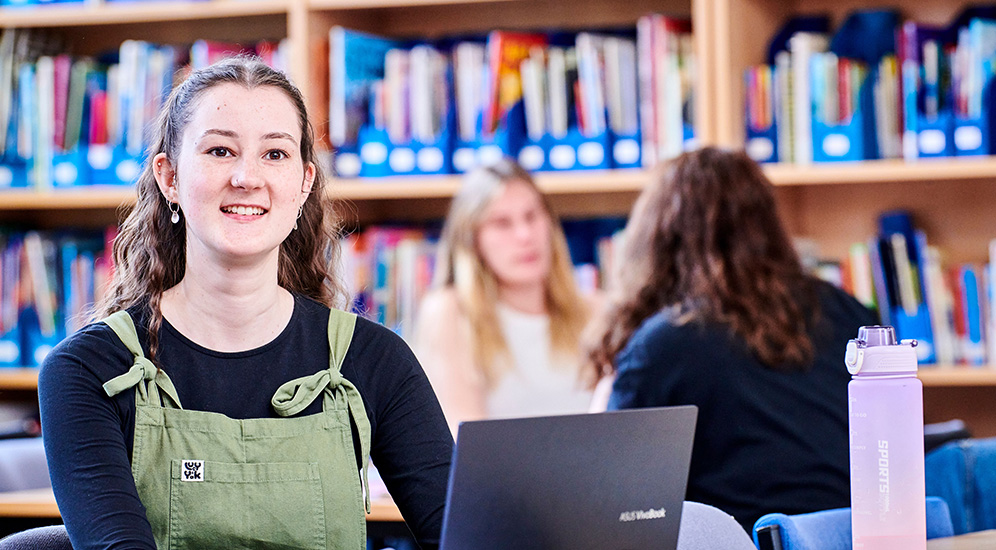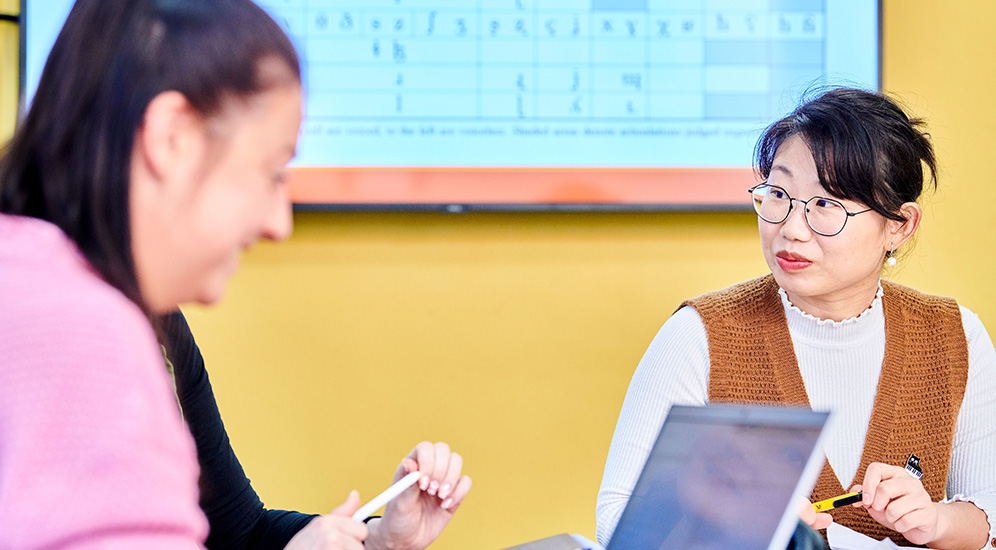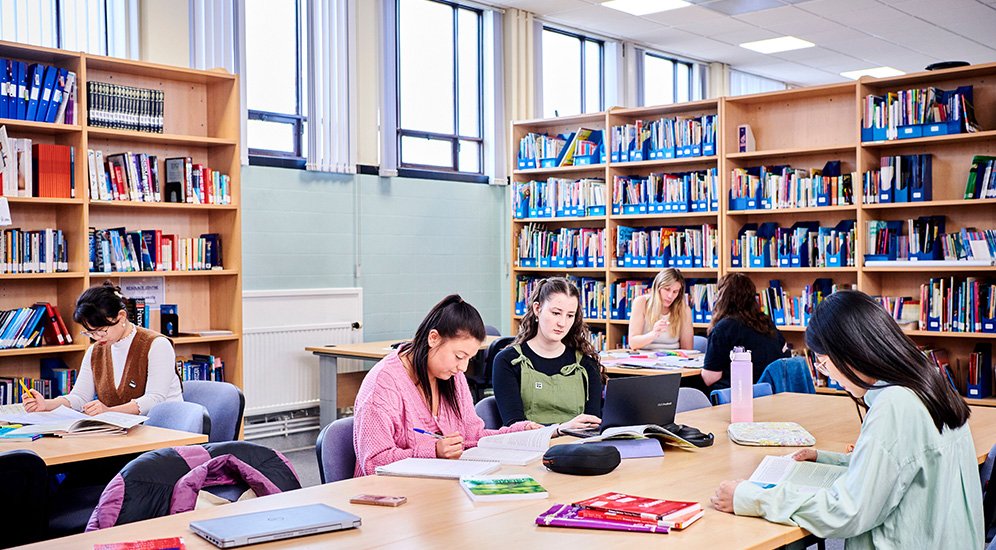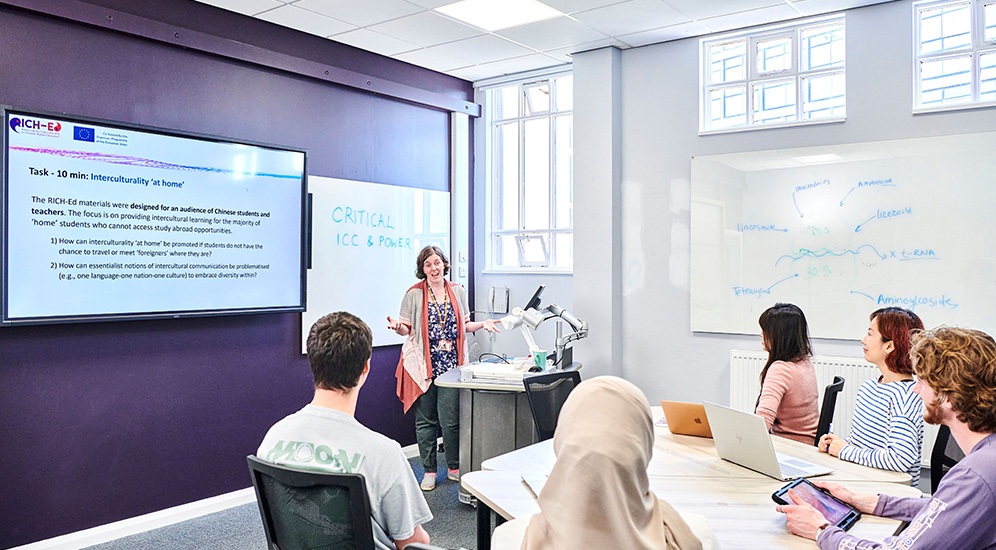Cross-Cultural Communication and Media Studies MA
Gain the skills to navigate global media landscapes, communicate across cultures, and shape stories that connect the world.
You are currently viewing course information for entry year:
Start date(s):
- September 2026
Overview
The Cross-Cultural Communication and Media Studies MA offers theory, research, and practical training. This covers media studies and intercultural communication, as well as approaches to understanding journalism, public relations practice, and cultural studies.
The Media Studies pathway is a specialism on the Cross-Cultural Communication MA.
Read more about the Cross-Cultural Communication element of the programme on its landing page.
If you have experience in journalism or public relations and want to deepen your academic knowledge, you can explore advanced topics in:
- public relations
- journalism
- intercultural communication
- research methods
- media, communication and culture
Media and cultural studies academic staff in the School of Arts and Cultures deliver this specialist pathway.
Read more about our media and cultural studies academic staff in the School of Arts and Cultures.
Important information
We've highlighted important information about your course. Please take note of any deadlines.
Please rest assured we make all reasonable efforts to provide you with the programmes, services and facilities described. However, it may be necessary to make changes due to significant disruption, for example in response to Covid-19.
View our Academic experience page, which gives information about your Newcastle University study experience for the academic year 2025-26.
See our terms and conditions and student complaints information, which gives details of circumstances that may lead to changes to programmes, modules or University services.
What you'll learn
Language and communication
Applied linguistics academic staff from the School of Education, Communication and Language Sciences deliver this strand. It comprises one compulsory module and a number of optional modules available to all cross-cultural communication students.
Here, you develop your understanding of intercultural communication theory and research, and become familiar with professional practice in intercultural and cross-cultural contexts.
Media studies pathway-specific modules
Media and cultural studies academic staff from the School of Arts and Cultures deliver the media studies strand of taught modules. You'll study with other media students.
You'll develop:
- a critical understanding of media, culture and society
- knowledge to theorise and analyse media, journalism and public relations
- knowledge of media law and advertising regulations in a transnational context
- an understanding of the strengths and weaknesses of different types of data dissemination
- analytical and critical skills to assess and conduct research in the field of media, journalism and PR
Modules
You will study modules on this course. A module is a unit of a course with its own approved aims and outcomes and assessment methods.
The module information below is intended to provide an example of what you will study.
Our teaching is informed by research. Course content changes periodically to reflect developments in the discipline, the requirements of external bodies and partners, and student feedback.
Full details of the modules on offer will be published through the Programme Regulations and Specifications ahead of each academic year. This usually happens in May.
To find out more please see our terms and conditions.
Optional modules availability
Some courses have optional modules. Student demand for optional modules may affect availability.
| Compulsory Modules | Credits |
|---|---|
| Research Portfolio | 60 |
| Introduction to Intercultural Communication | 20 |
| News and Media Analysis | 20 |
With the approval of the Degree Programme Director and depending upon the academic background of the candidate, alternative optional modules to those listed above may be selected.
How you'll learn
On our Cross-Cultural Communication and Media Studies MA, we deliver modules through a mix of:
- in-person lectures
- in-person small group teaching
- in-person small group workshops
- online lecture videos and activities
- online interactive lessons
We use a variety of teaching methods to:
- support your learning experience
- develop your learning potential
- prepare you for your career post-study
Interactive sessions encourage you to apply new knowledge, concepts and skills to your learning. Weekly independent study tasks allow you to engage with and contribute to sessions and seminars.
If you choose to study part-time, we will work flexibly with you to develop a plan for your studies.
Depending on your modules, you'll be assessed through a combination of:
- Case study
- Computer assessment
- Essay
- Oral presentation
- Portfolio
- Reflective log
- Research proposal
- Research paper
- Written exercise
The Cross-Cultural Communication research portfolio is equal to an MA-level dissertation. It involves three separate research files which take place over the course of the academic year:
- a reflective literature-based research skills assignment
- a presentation on a methodological approach to research in intercultural communication
- an empirical research project
Throughout your studies, you’ll have access to support from:
- academic staff
- personal tutors and research supervisors
- our University Student Services Team
- student representatives
- peers
You'll also be assigned an academic member of staff, who will be your personal tutor throughout your time with us. They can help with academic and personal issues.
Your teaching and learning is also supported by Canvas. Canvas is a Virtual Learning Environment. You'll use Canvas to submit your assignments and access your:
- module handbooks
- course materials
- groups
- course announcements and notifications
- written feedback
Your development
Professional skills
You'll develop a range of skills valued in media and PR roles, such as:
- the ability to deliver and evaluate a PR event in the public, private and voluntary sectors
- skills to set up a campaign network and deliver PR campaign messages
- skills to produce effective press releases and script, shoot and edit digital films
- skills to produce news reports in a range of media forms
- skills to script, shoot and edit digital films
Supporting your development
Our programme is designed to support your development over the course of the year.
Semester 1 modules will give you a foundational knowledge of key areas in intercultural communication. Semester 2 modules will allow you to build on this. You will select specialist topics suited to your interests and future goals.
Through class discussion and assessment, you will reflect on your own intercultural communication, learning and development.
Through a research portfolio, you'll gain the analytical and theoretical skills required to understand and analyse communication in a social setting of personal interest or relevance to you.
As a part-time student, you can conduct a research project of relevance to your employer and/or industry.
You will develop valuable intercultural skills. These skills are essential for working in diverse academic and professional environments.
You will enhance your ability to communicate effectively across cultures by:
- engaging with peers from diverse cultural and linguistic backgrounds
- participating in intercultural group work
- critically examining global perspectives in your field
The programme’s curriculum:
- encourages reflection on your own cultural assumptions while fostering an appreciation for others
- equips you with the sensitivity and adaptability needed to navigate multicultural settings with confidence and respect
Your future
Intercultural communication and media careers
The Cross-Cultural Communication and Media Masters course is relevant if you wish to study communication, language and culture, especially in the context of media and public relations. The course will prepare you for work in international and intercultural environments.
Communication is an essential aspect of the work in roles such as:
- marketing and communications specialist
- communications consultants
- social media manager
- public relations officer
- publicist
- media researcher
- strategic advisor
- digital communications manager
- international sales representatives
- teacher
Our Careers Service
Our expert Careers Service is here to help you take the next steps in your professional life. We will support you while you’re studying with us and for up to three years after you graduate.
You will have access to expert one-to-one advice and guidance through our campus careers centre and online, along with digital resources, workshops, networking opportunities, and careers and recruitment events.
We’ve been awarded 5 QS Stars for Student Employability (2025). Many of our degrees are shaped by strong links with national and international businesses. We are committed to helping you access real-world experience opportunities and develop key skills through paid work placements and internships.
Quality and ranking
All professional accreditations are reviewed regularly by their professional body
If you’re studying an accredited degree and thinking about working in Europe after you graduate, the best place to find current information is the UK Government’s guidance on recognition of UK professional qualifications in EU member states. This official resource explains whether your profession is regulated in another country, what steps you need to take, and which organisation you should contact.
Facilities
As a student in the School of Education, Communication and Language Sciences, you'll have access to facilities and a growing collection of online resources, including:
- a well-stocked Education Resource Centre
- a language analysis lab
- a phonetics lab
- an audio-video lab
- a recording studio
You will have access to a range of IT systems and software and library resources (including electronic journals and databases).
Newcastle University Library is an award-winning service consisting of four buildings on campus and one off-campus facility, home to over 0.8 million print books, over 0.7 million e-books and over 54,000 e-journal titles.
The library also has study spaces, a postgraduate study rooms, computer clusters, media room and café.
Fees, Funding and Scholarships
Tuition fees for 2026 entry (per year)
As a general principle, you should expect the tuition fee to increase in each subsequent academic year of your course, subject to government regulations on fee increases and in line with inflation.
Depending on your residency history, if you’re a student from the EU, other EEA or a Swiss national, with settled or pre-settled status under the EU Settlement Scheme, you’ll normally pay the ‘Home’ tuition fee rate and may be eligible for Student Finance England support.
EU students without settled or pre-settled status will normally be charged fees at the ‘International’ rate and will not be eligible for Student Finance England support. You may be eligible for a scholarship worth 25% off the international fee. Search our funding database.
If you are unsure of your fee status, check out the latest guidance here.
Scholarships
We support our EU and international students by providing a generous range of Vice-Chancellor's automatic and merit-based scholarships. See our searchable postgraduate funding page for more information.
What you're paying for
Tuition fees include the costs of:
- matriculation
- registration
- tuition (or supervision)
- library access
- examination
- re-examination
- graduation
Find out more about:
If you are an international student or a student from the EU, EEA or Switzerland and you need a visa to study in the UK, you may have to pay a deposit.
You can check this in the How to apply section.
If you're applying for funding, always check the funding application deadline. This deadline may be earlier than the application deadline for your course.
For some funding schemes, you need to have received an offer of a place on a course before you can apply for the funding.
Search for funding and scholarships
Find funding available for your course
Entry requirements
The entrance requirements below apply to 2026 entry.
Qualifications from outside the UK
English Language requirements
Admissions policy
This policy applies to all undergraduate and postgraduate admissions at Newcastle University. It is intended to provide information about our admissions policies and procedures to applicants and potential applicants, to their advisors and family members, and to staff of the University.
University Admissions Policy and related policies and procedures
Credit transfer and Recognition of Prior Learning
Recognition of Prior Learning (RPL) can allow you to convert existing relevant university-level knowledge, skills and experience into credits towards a qualification. Find out more about the RPL policy which may apply to this course
Pre-Master’s and English Language courses
Need an alternative route to study this course? Our International Study Centre offers Pre-Master’s degrees and English language courses to prepare you for study.
How to apply
Using the application portal
The application portal has instructions to guide you through your application. It will tell you what documents you need and how to upload them.
You can choose to start your application, save your details and come back to complete it later.
If you’re ready, you can select Apply Online and you’ll be taken directly to the application portal.
Alternatively you can find out more about applying on our applications and offers pages.
Apply Online
Open days and events
Find out about how you can visit Newcastle in person and virtually
Overseas events
We regularly travel overseas to meet with students interested in studying at Newcastle University.
Get in touch
Questions about this course?
If you have specific questions about this course you can contact:
Degree Programme Secretary
School of Education, Communication and Language Sciences
Telephone: +44 (0) 191 208 8830
Email: CCC@ncl.ac.uk
General enquiries
For more general enquiries, you could also complete our online enquiry form.
Application enquiries
If you've got a question about your application, send us an enquiry via the application portal you applied through.
If you haven't applied yet, you can send your questions via our enquiry form.
Live chat
Our Ncl chatbot might be able to give you an answer straight away. If not, it’ll direct you to someone who can help.
You'll find our Ncl chatbot in the bottom right of this page.
Chat to our students
Choosing a university is a big decision. If you've got questions about a particular course, student life or the city of Newcastle, why not chat to our friendly students or graduates!
Keep updated
We regularly send email updates and extra information about the University.



